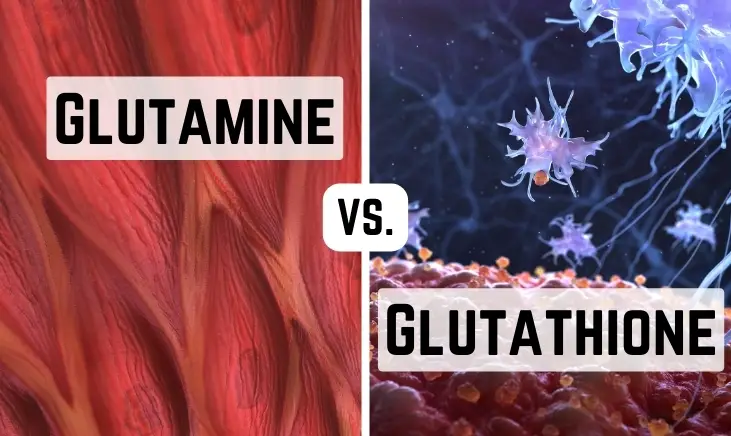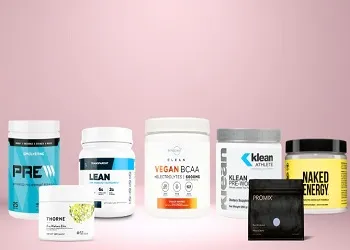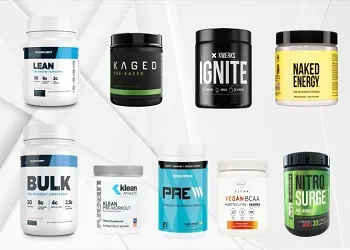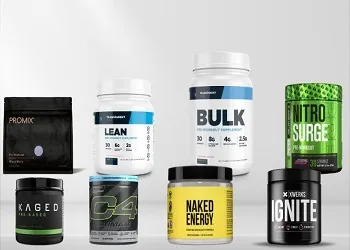You probably read the title and thought, those two words look the same. While glutamine and glutathione sound very similar, they differ quite a lot, so let’s take a look at some similarities, differences, and the bottom line of what you need to know about glutamine vs glutathione.
Table of Contents
What are Amino Acids?
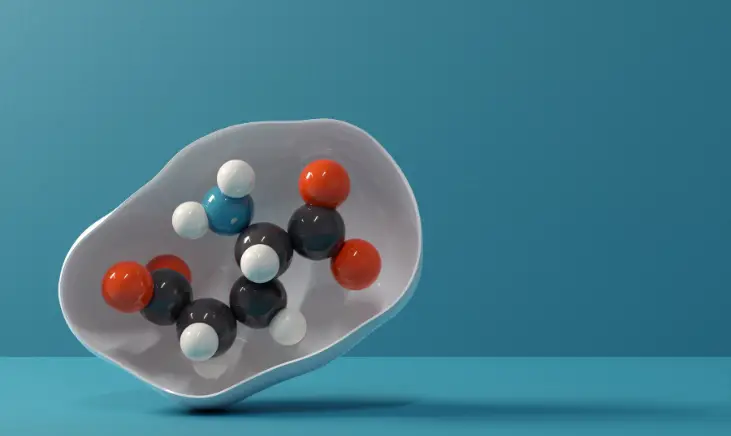
Amino acids are small molecules made from carbon, hydrogen, oxygen, nitrogen and sulfur. They are found in proteins, including the proteins we eat (e.g., meat, eggs, beans) and the proteins in our bodies (e.g., muscles).
They play critical roles in metabolism, cellular communication, immune function, and tissue synthesis. You probably know them for their starring role in muscle protein synthesis, and you might even be taking an amino acid supplement for this reason already!
Now that you have a basic overview of what an amino acid is, we can dive deeper into glutamine and glutathione.
What is Glutamine?
Glutamine is a conditionally essential amino acid, meaning that our body is capable of making glutamine endogenously under normal circumstances, but at times we have to meet our glutamine needs through food and other exogenous sources.
Glutamine is made of carbon, nitrogen, oxygen and hydrogen and is the most abundant amino acid in the human body. It is found mostly in the muscles and liver, where it performs a variety of functions.
We get glutamine from foods like meat, eggs, tofu, corn, and beans.
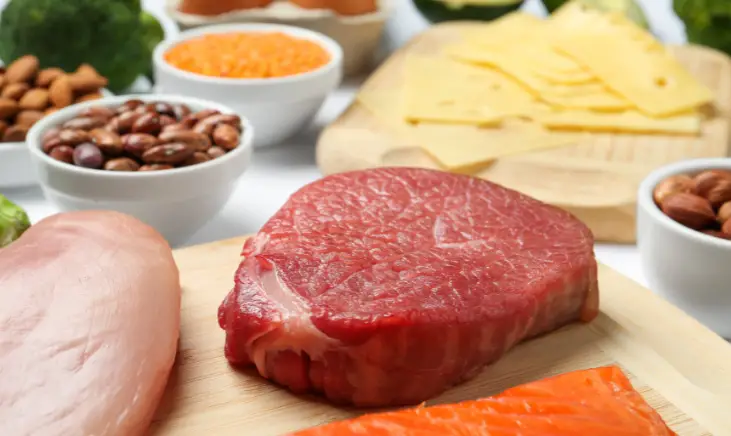
Glutamine Vs. L-Glutamine
You may be wondering, is L-glutamine the same as glutamine? The short answer is—yes. The L refers to the shape that glutamine takes based on the environment it’s in. There is also D-glutamine, but L-glutamine is the form that we find in our food and supplements and is used to make proteins in our bodies. The terms L-glutamine and glutamine are often used interchangeably.
Glutamine and Immune Cell Function
Immune cells are those that can detect viruses or bacteria and/or initiate a defense against them. Immune cells consume glutamine for energy to reproduce, produce defense molecules, and kill invaders.
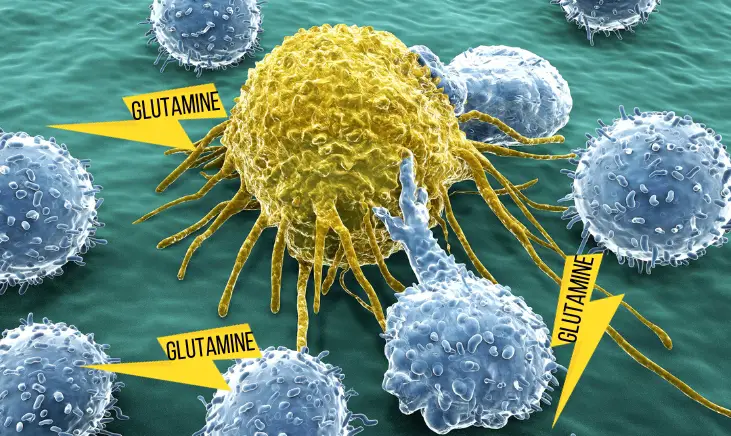
Glutamine Metabolism
Glutamine can be made in our body using glutamate (another amino acid), ammonia, and energy. Glutamine is maintained at stable levels in our muscles, where it participates in muscle protein synthesis. When homeostasis is compromised—usually after the body has experienced intense trauma or stress—this ability to synthesize glutamine is affected.
It is estimated that healthy individuals make 40-80 grams of glutamine every day.
Glutamine and Protein Synthesis
Glutamine is considered a proteinogenic amino acid, meaning it is integrated into new proteins. About 80% of all of the glutamine in the body is found in the skeletal muscles. Glutamine also activates the machinery required to synthesize proteins and increase muscle mass.
You may have less glutamine in your muscles when you have decreased your intake of carbohydrates or amino acids or during stress/disease states.
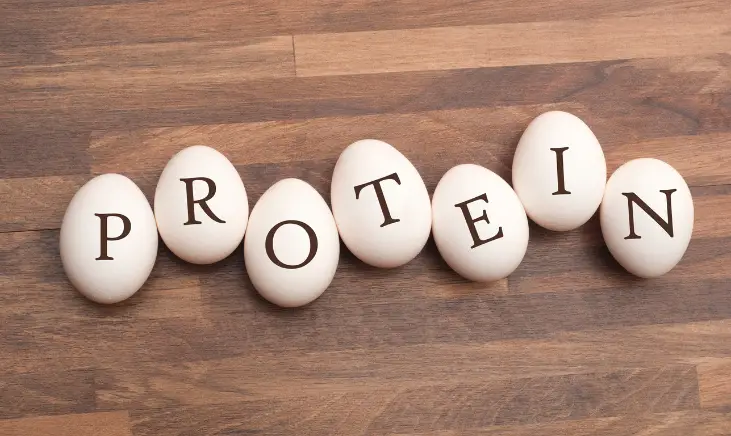
Glutamine and the Gut
Glutamine is also synthesized in the intestine where cells lining the gut consume it for energy. These cells are regenerated frequently, so they require a lot of energy and consume a lot of glutamine regularly.
What is Glutathione?
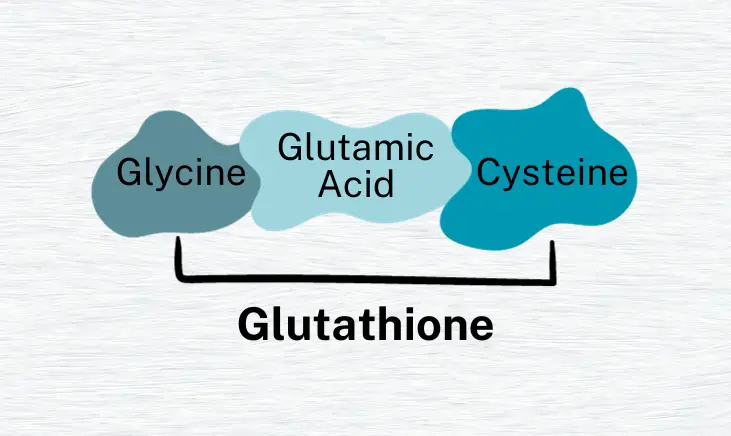
Glutathione is a tripeptide, meaning a small protein made from 3 (tri) amino acids. These 3 amino acids are cysteine, glycine, and glutamic acid. Glutathione is found in most cells in the body.
Inflammation and Detoxification
It’s hard to imagine what we mean when we say there is inflammation in the body. Despite its name, it does not mean that there are flames inside of us! Inflammation can be caused by oxidative stress when cells and tissues are damaged by reactive oxygen species (ROS). These have many different names such as superoxide or hydroxyl radicals, hydrogen peroxide, and singlet oxygen, and they are usually produced in the mitochondria of the cell.
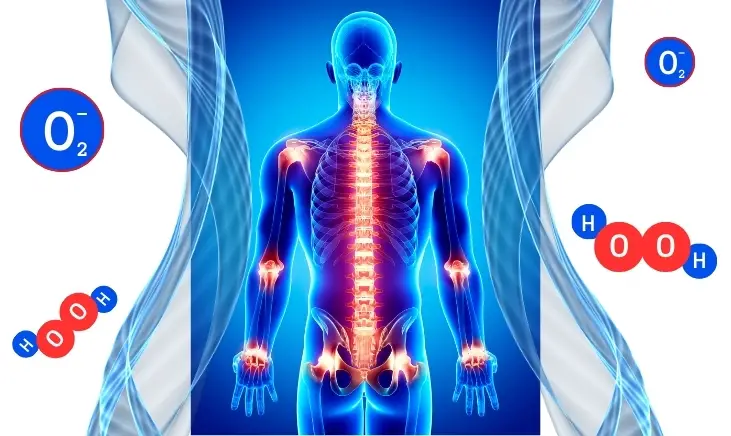
The production of ROS is a natural byproduct of many processes that use oxygen. However, when there is an imbalance between the production of ROS and their detoxification, we get oxidative stress. This can lead to diseases like cardiovascular disease, diabetes, and cancer.
Glutathione as an Antioxidant
Glutathione is a molecule that can detoxify ROS, maintaining a healthy balance between ROS generation and detoxification. Glutathione is a non-enzymatic antioxidant and is one of the most well-studied antioxidants.
Glutathione is involved in the detoxification of ROS in many different ways, including:
- Directly neutralizes oxygen radicals
- Supports other antioxidant enzymes
- Regenerates other antioxidants like vitamins C and E
- Detoxifies radicals in the liver
- Removes mercury from cells and the brain
- Regulates cell reproduction and death, monitoring for the creation of ROS
- Maintains proper function of the mitochondria
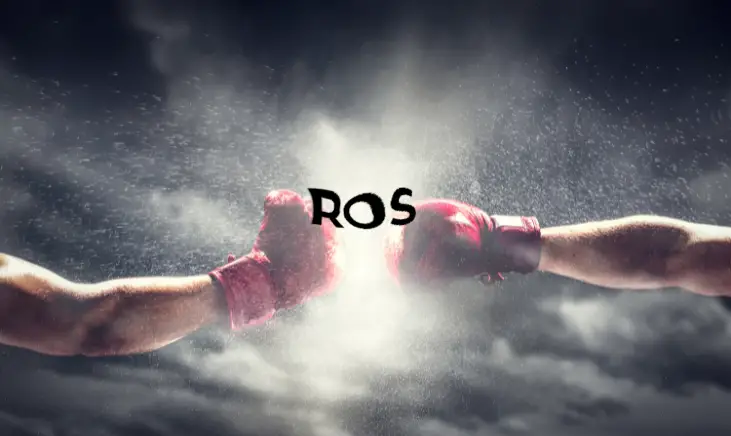
Low amounts of glutathione in the body have been associated with diseases such as neurodegenerative diseases (e.g., Alzheimer’s), cardiovascular disease, autoimmune diseases, and more.
For these reasons, adequate amounts of glutathione are necessary for your health to decrease toxins and promote longevity.
Glutamine vs Glutathione
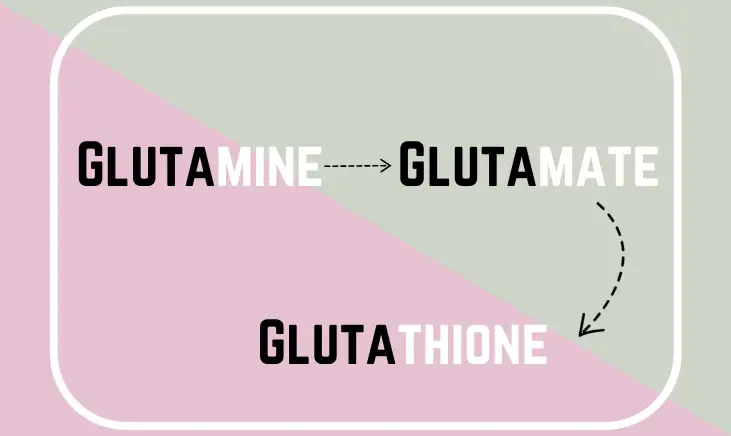
Remember when we were looking at glutamine synthesis in the body from glutamate? The reverse is also true, and glutamate is synthesized from glutamine. Glutamate is also an important molecule for the synthesis of glutathione. Therefore, the amount of available glutamine can impact the amount of glutathione we make via glutamate. These metabolic pathways link glutamine and glutathione.
While glutamine and glutathione do sound similar, here is a summary of the major differences.
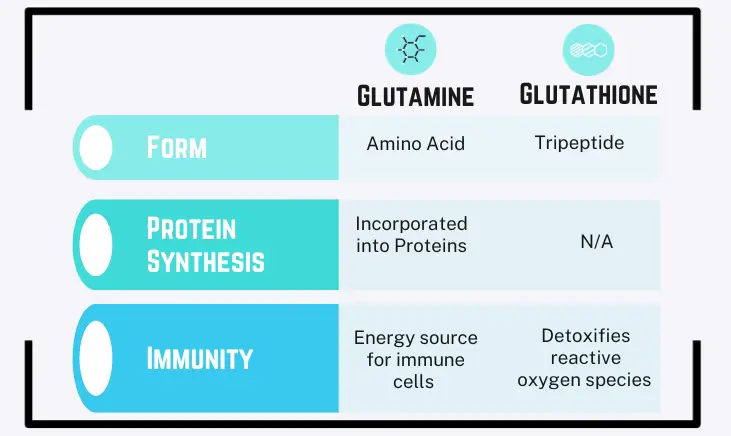
Supplementation
Glutamine is given to critically ill patients regularly because of its importance as a fuel for immune cells and healing. More research is being done regarding glutamine as a supplement for athletes because of its association with decreasing fatigue, muscle synthesis, and preventing muscle breakdown.
While this research is still inconclusive, a meta-analysis found that dietary glutamine supplementation may affect weight loss, immune reactions, and blood glucose levels post-exercise, but it did not have a significant effect on aerobic performance.
Glutathione supplementation is used clinically to treat diseases like Parkinson’s and cystic fibrosis. Glutathione can be increased in the body by oral, topical, intravenous, and intranasal administration. Increasing intake of other nutrients that are involved in glutathione production can also increase glutathione levels—cysteine is one of those nutrients.
The effectiveness of oral glutathione supplementation is not conclusive. A recent review looking at the effectiveness of vitamin C and glutathione supplementation found inconsistent results on its effectiveness on oxidative stress and exercise performance.
Consult your healthcare provider before starting any dietary supplements, including glutamine or glutathione.
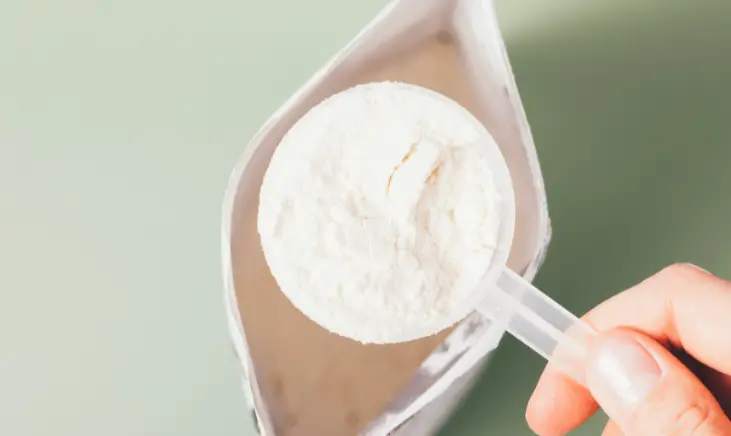
Summary
- Glutamine is an amino acid with important roles in protein synthesis.
- Glutathione is a small protein and antioxidant, with major roles in decreasing and preventing oxidative stress.
- Neither glutamine nor glutathione supplementation is required and should only be done with caution and consultation with a healthcare professional given the limited literature surrounding long-term effects and dosing.
FAQs
Can I take l-glutamine and glutathione together?
Glutamine and glutathione are both compounds that occur naturally in our food and body. Their supplementation is not necessary, and the long-term effects of amino acid supplementation are still unknown. Use caution if supplementing with large amounts of amino acids. Focus on eating a well-balanced diet that includes protein-rich foods and a variety of vitamins and minerals!
Does glutamine turn into glutathione?
Glutamine can be used to make glutamate, which is then used to make glutathione. So yes—indirectly. Glutamine is one step in the process of glutathione synthesis.
What is the best form of glutamine to take?
Glutamine supplements come in L-glutamine form. When choosing a supplement always check for third-party certification, and read the ingredients list to look for any allergens or additives that you want to avoid. But, as a dietitian, I would always recommend trying to get the most nutrients that you can out of your food. A balanced diet consisting of protein-rich foods, fruits and vegetables, healthy fats, and whole grains will provide your body with ample amounts of nutrients, including glutamine.
